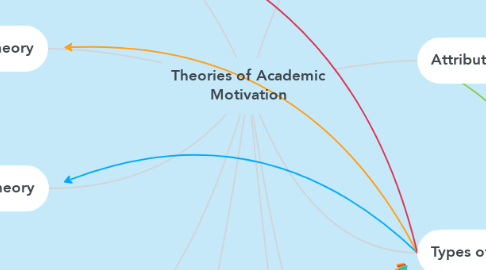Theories of Academic Motivation
par Tater Comer


1. Expectancy-Value Theory
1.1. Focuses on our beliefs about our expectancies for success oat various academic tasks, and the value we have on those tasks (Anderman, Pg 8).
1.1.1. Expectancy
2. Social Cognitive Theory
2.1. Focuses on how individuals learn behaviors by observing others, and our beliefs about our abilities to perform tasks (Anderman, Pg 8)
2.1.1. Triadic Reciprocity
2.1.2. Self-Efficacy
3. Goal Orientation Theory
3.1. Focuses on the reasons why individuals work on specific academic tasks. Two main goals are the goal of mastering a task and the goal of demonstrating one's ability at a task (Anderman, Pg 8).
3.1.1. Mastery Approach Goals
3.1.2. Mastery Avoid Goals
3.1.3. Performance Approach Goals
3.1.4. Perfoemance Avoid Goals
4. Values of Tasks:
4.1. Attainment: Importance to students of doing well on a task (Anderman, Pg 17)
4.2. Intrinsic: inherently interesting, enjoyable, or like-able a task is to students.
4.3. Utility: students' perceptions of the usefulness of a particular task.
4.4. Cost: negative aspects of engaging in a task
5. Grouping
5.1. Between- Class grouping_ when classes are formed based on students' similarities on some characteristic , usually on their prior achievement.
5.2. Within-Class Grouping: dividing the students within the classroom
6. Self Determination Theory
6.1. Focuses on Intrinsic and Extrinsic motivation. Humans engage in activities to meet basic needs (need for competence, relatedness, and autonomy (Anderman, Pg 8).
6.1.1. Intrinsic Motivation
6.1.2. Extrinsic Motivation
6.1.3. Need for Competence
6.1.4. Need for Relatedness
6.1.5. Need for Autonomy
7. Attribution Theory
7.1. Focuses on how we explain events that have happened in our lives (Anderman, Pg 8).
7.1.1. Stability
7.1.2. Locus
7.1.3. Control
